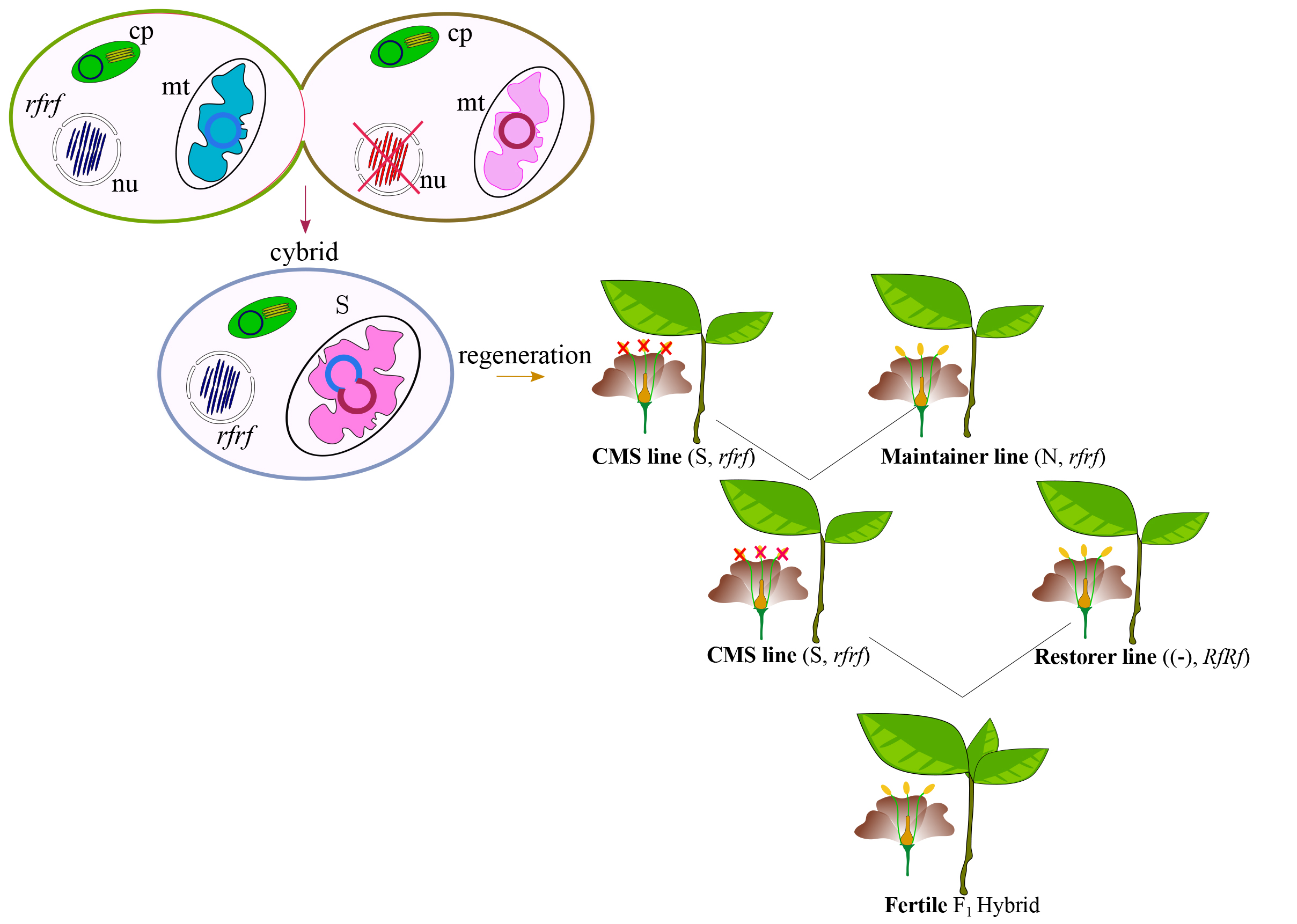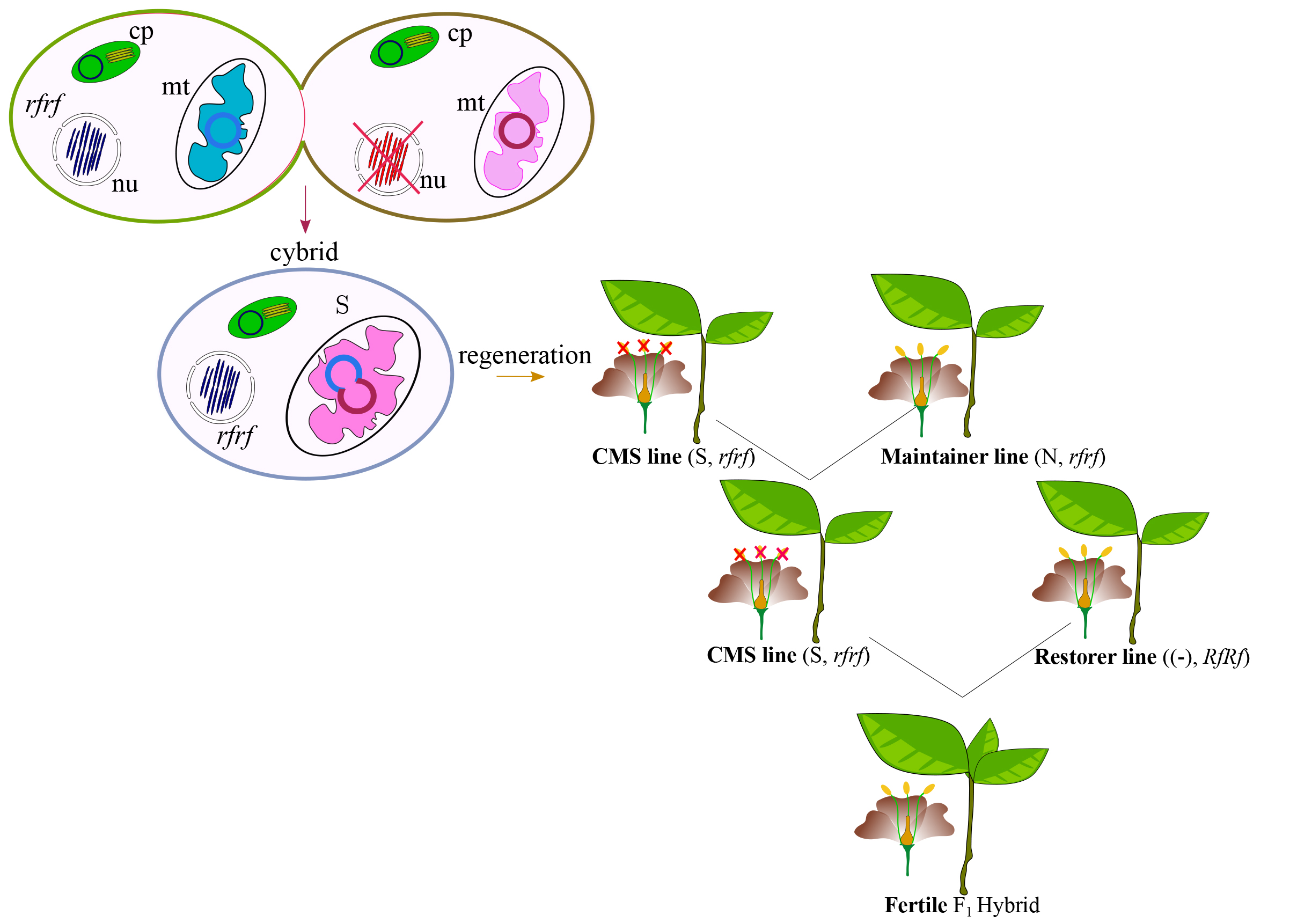Male sterility and somatic hybridization in plant breeding
Palabras clave:
incompatibilidad, mitocondria de plantas, híbridos somáticos, recombinación genéticaResumen

Plant male sterility refers to the failure in the production of fertile pollen. It occurs spontaneously in natural populations and may be caused by genes encoded in the nuclear (genic male sterility; GMS) or mitochondrial (cytoplasmic male sterility; CMS) genomes. This feature has great agronomic value for the production of hybrid seeds, since it prevents selfpollination without the need of emasculation which is time-consuming and cost-intensive. CMS has been widely used in crops, such as corn, rice, wheat, citrus, and several species of the family Solanaceae. Mitochondrial genes determining CMS have been uncovered in a wide range of plant species. The modes of action of CMS have been classified in terms of the effect they produce in the cell, which ultimately leads to a failure in the production of fertile pollen. Male fertility can be restored by nuclear-encoded genes, termed restorer-offertility (Rf) factors. CMS from wild plants has been transferred to species of agronomic interest through somatic hybridization. Somatic hybrids have also been produced to generate CMS de novo upon recombination of the mitochondrial genomes of two parental plants or by separating the CMS cytoplasm from the nuclear Rf alleles. As a result, somatic hybridization can be used as a highly efficient and useful strategy to incorporate CMS in breeding programs.
Highlights
-
Plant cytoplasmic male sterility (CMS) has great agronomic value for the production of hybrid seeds.
-
Male fertility can be restored by nuclear-encoded genes, termed restorer-of-fertility (Rf) factors.
-
Somatic hybridization is a useful scheme to uncover novel CMS/Rf systems to integrate in plant breeding programs.
-
CMS from wild plants can be transferred to species of agronomic interest through somatic hybridization.
-
The molecular mechanisms responsible for CMS are highly variable and involve RNA editing, homologous and non-homologous recombination, as well as a variety of gene regulators like non coding RNA.
Descargas

Descargas
Publicado
Cómo citar
Número
Sección
Licencia
Aquellos autores/as que tengan publicaciones con esta revista, aceptan las Políticas Editoriales.










.jpg)




